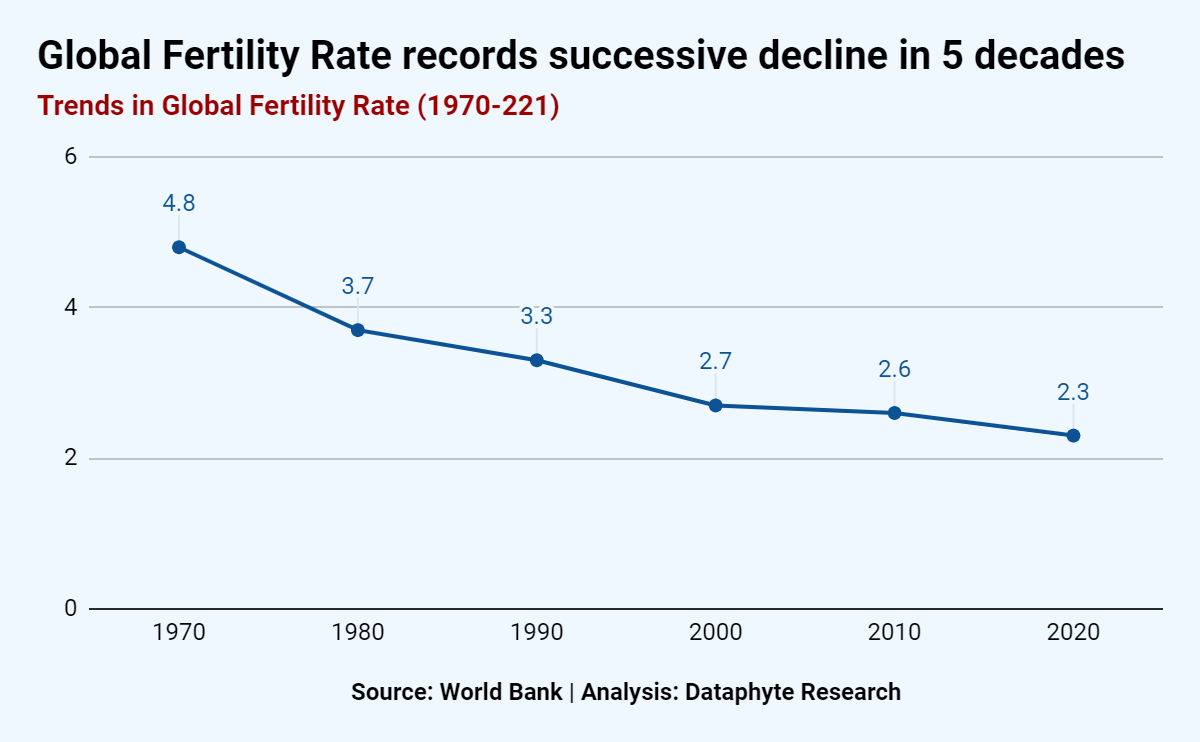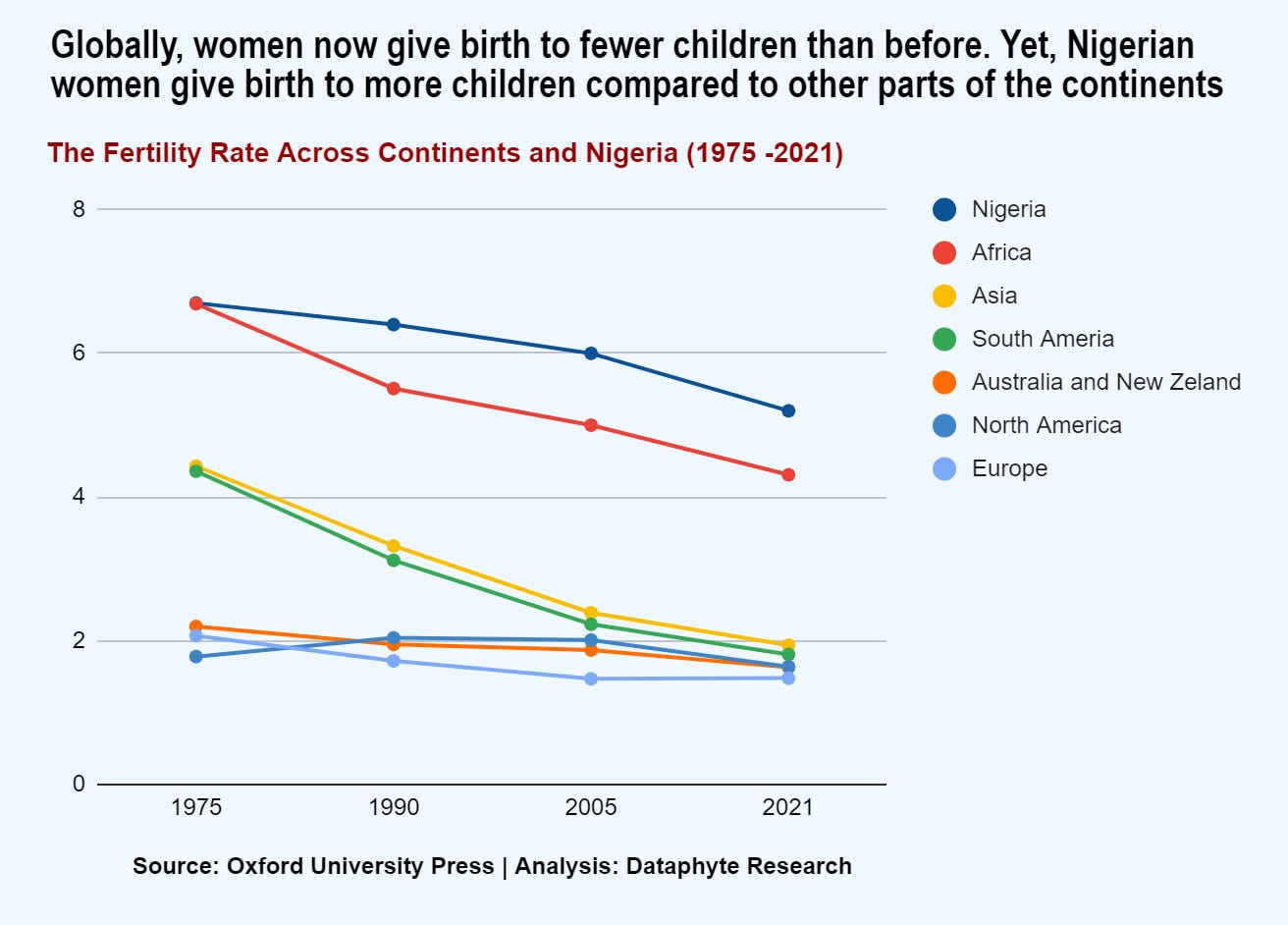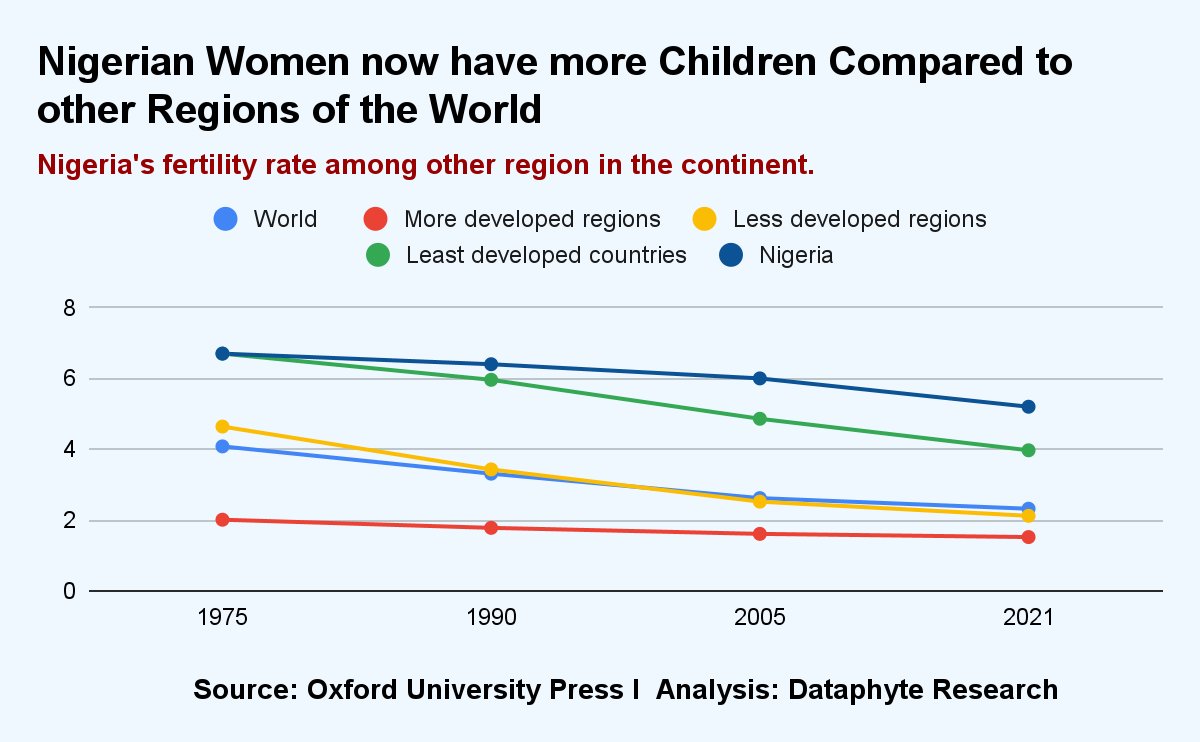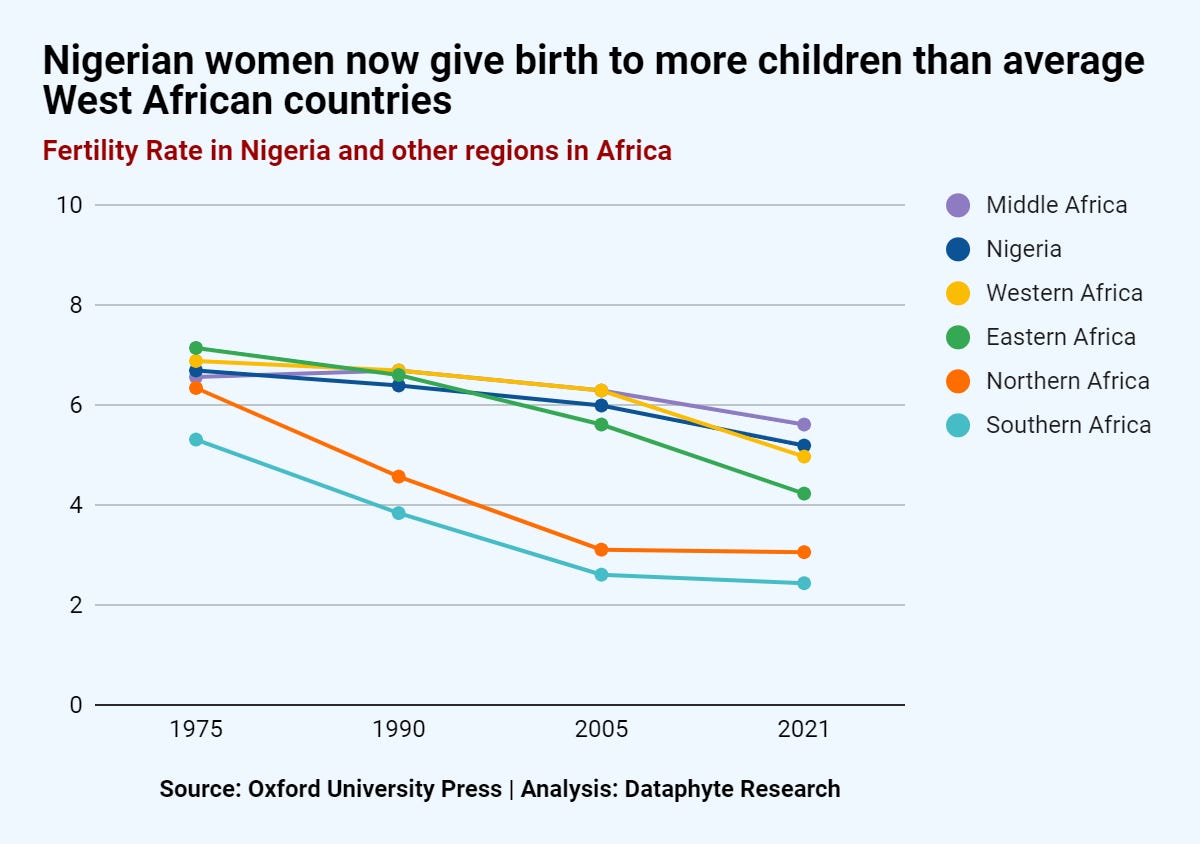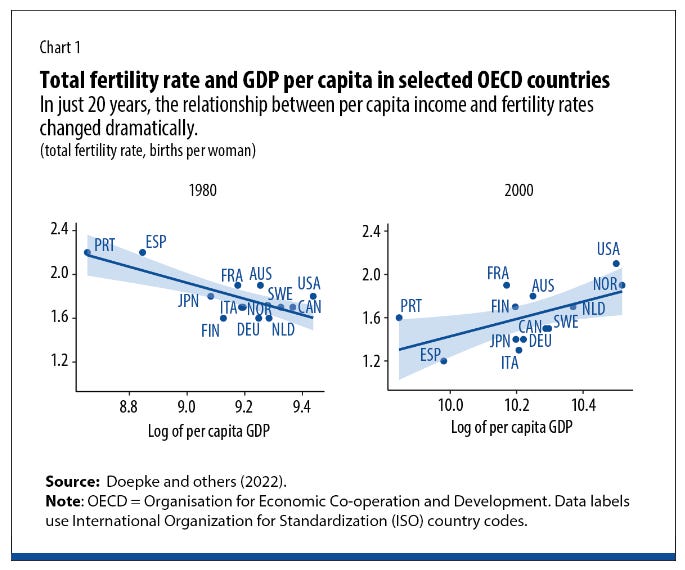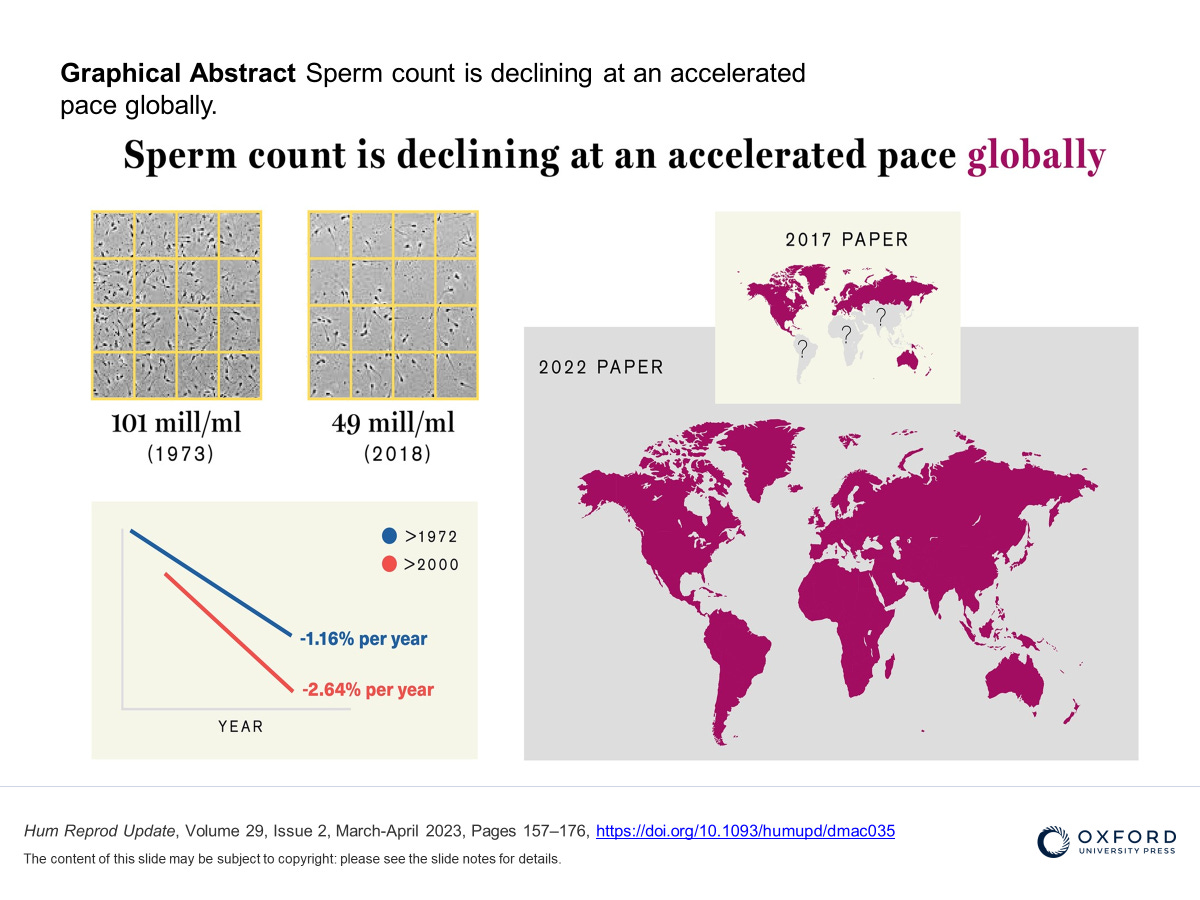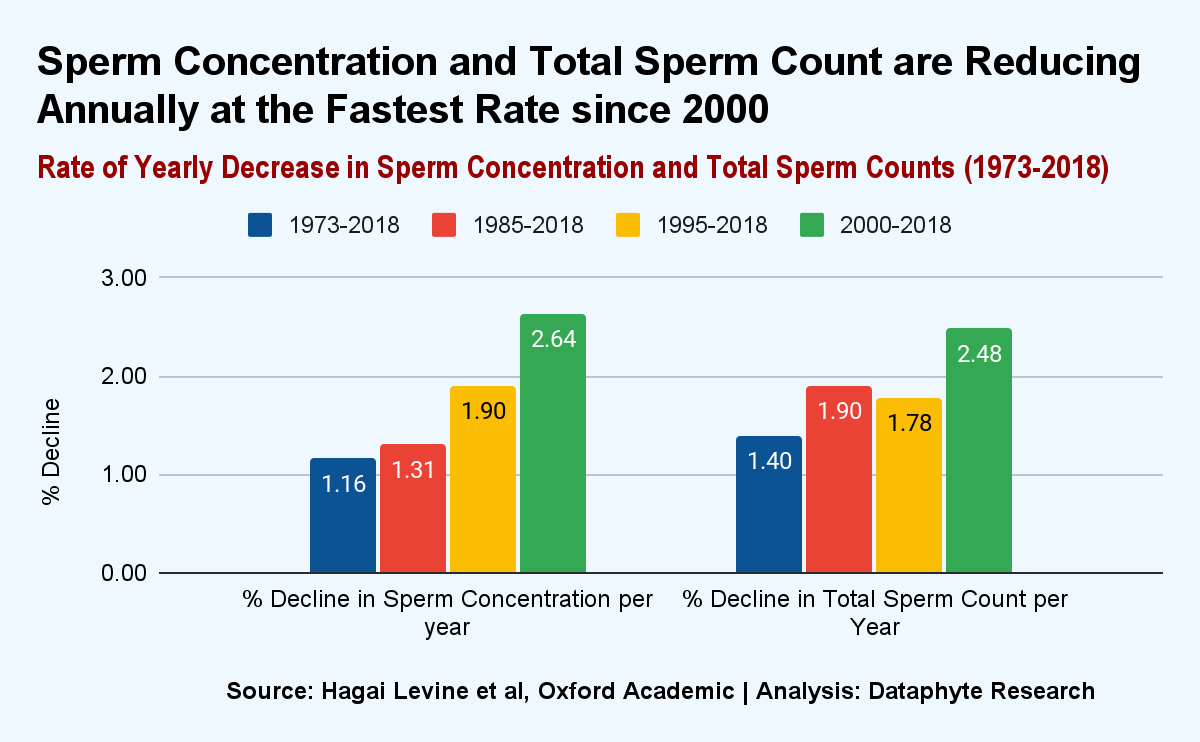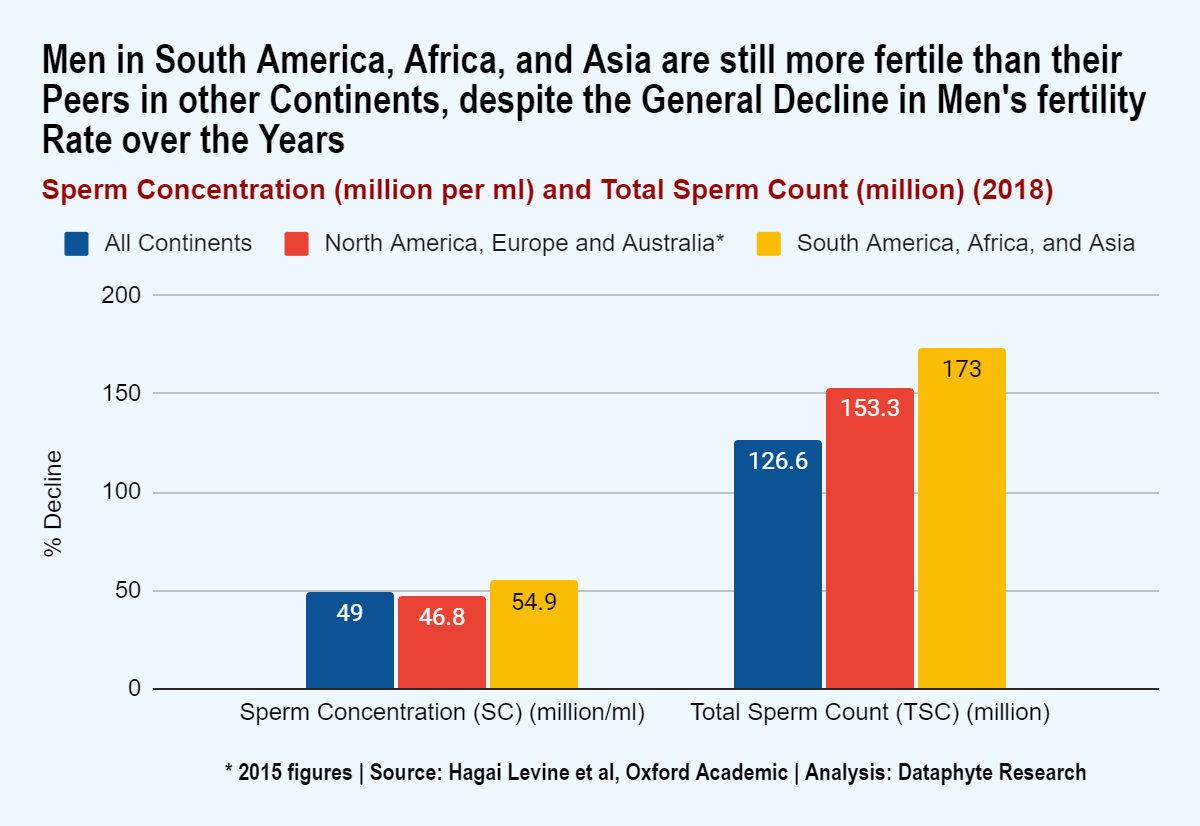A Half Empty World
Apart from the effects of migration, many countries in the world are predicted to have a population decline of over 50% in 2100, due to a general decline in the number of children women give birth to, otherwise known as the fertility rate.
A decline in the fertility rate initially results in having more working-age people, especially women in the labour force, which leads to economic productivity and a temporary ‘demographic dividend’.
However, in countries with fertility rates below the replacement level, there will be more elderly people (an age group considered dependent and less productive) and fewer working adults, which leads to less economic productivity.
Global fertility rates have declined from 4.8 births per woman in 1970 to 2.3 in 2020.
The major factors that contributed to the declining fertility rate include family planning policies, infertility prevalence in both men and women, gender equity, education levels, and delayed childbirth (both voluntary and involuntary), among others.
At the inter-continental level, African women give birth to more children than those in other continents. On average, an African woman gives birth to over 4 children as of 2021. Women in other continents give birth to 2 or less children.
Yet, Nigerian women bear more children than the average African woman. Nigerian women give birth to over 5 children.
Nigeria’s fertility rates also exceed the average for countries in the least developed regions of the world.
At the sub-continental level, however, women in Central Africa give birth to the most children, followed by their peers in West Africa.
Only Northern African and Southern African women give birth to 3 or less children. The rest give birth to 4 or more children.
Over time, high fertility rates as is obtainable in Nigeria always lead to low productivity, but current trends show that it could go either way depending on women’s access to education and the existence of policies that encourage women to work while they run their families.
According to the IMF, “Despite a continued negative income-fertility relationship in low-income countries (particularly in sub-Saharan Africa), it has largely disappeared both within and across high-income countries.”
This shows that Sub-Saharan countries like Nigeria too can make the best gains from fertility rates if their women give birth to a moderate number of children, and have sufficient education and mother-friendly workplace policies that enable them to maintain productive careers as well.
Half-Empty Male Pouches
The male fertility rate has also been reduced by 50%, furthering the possibility of a half-full world by 2100, several studies show.
Between 1973 and 2018, the average male Total Sperm Count (TSC) reduced from 101.2 million per ml to 49 million per ml, showing a 51.6% decline in male fertility rate.
Also, the Sperm Concentration (SC) reduced by 1.16% yearly in the 46-year period. However, the speed of decline has accelerated to 2.64% yearly since 2000.
“Numerous studies have reported declines in semen quality and other markers of male reproductive health (and) data suggest that this worldwide decline is continuing in the 21st century at an accelerated pace,” recent research by Hagai Levine indicates.
However, despite the global decline in men’s fertility rate, men in South America, Africa, and Asia still have higher sperm concentration and total sperm counts than their peers in the Western world.
Currently, there appears to be no cause for alarm, as the current global and continental averages of sperm concentration and sperm count per ejaculation are still relatively good.
“Normal sperm densities range from 15 million to greater than 200 million sperm per millilitre of semen. You are considered to have a low sperm count if you have fewer than 15 million sperm per millilitre or less than 39 million sperm total per ejaculate,” a Public Health Advisory Website, Mayo Clinic, assures.
Yet, it warns that “Your chance of getting your partner pregnant decreases with decreasing sperm counts,” and that is the worry. These current safe levels of male fertility have been declining by over 2% every year since, the year 2000.
Normal Values of Sperm Concentration and Sperm Count
Source: Health University of Utah
The cause of the continued decline in sperm concentration and general male reproductive health has been attributed to different causes such as smoking, alcohol intake, obesity, medications, and health ailments peculiar to the male gender.
Gender and Justice
Across many countries, more women now qualify as lawyers, but only a few work at senior levels across different sectors of the profession, research revealed.
The Nigerian legal profession mirrors this pattern.
Recent studies showed that there are roughly the same number of female and male law students across law faculties within the country, yet there are more male lawyers in the most senior legal positions than females.
This shows that despite the increasing female representation in the law profession, there is a gender imbalance in senior-level positions.
Across the four levels of the legal profession globally, it is only the public and the corporate sectors that have a higher women representation.
Similarly in Nigeria, females hold 46% of senior positions in the legal field, most of which are in the public and corporate sectors. Female representation among senior judges stands at only 33%.
Top judicial offices in the country have more male representation than female. In the last 3 years, male lawyers have dominated the Nigeria National Judicial Offices more than female lawyers.
An analysis shows that the legal profession in Uganda, and Nigeria are yet to achieve the 50% threshold in gender representation, with female lawyers at 49% and 40% respectively.
Spain and England have surpassed this threshold with 54% and 51% respectively.
Besides the obvious gender inequities at senior-level positions in the legal profession, especially at the judiciary and the law firms, does the over-representation of males at the top levels of the Bench and the Bar affect the justice system in Nigeria?
SenorRita Pleads 🙏
Use your sperm wisely! You never know how much you have left!
With a faster decline in the amount of sperm men now carry in their pouches and a further decline in the concentration of the sperm in their semen, it’s time for adult males to be circumspect in the disposal of their life-giving seeds.
Thanks for Reading this edition of SenorRita. See you next time!
This edition of SenorRita was composed by Funmilayo Babatunde.




